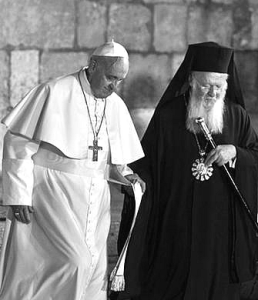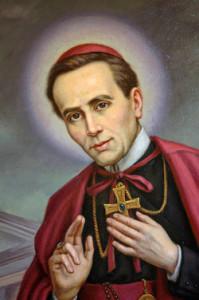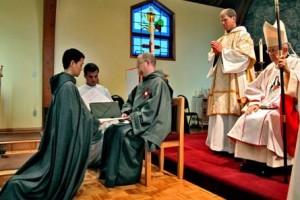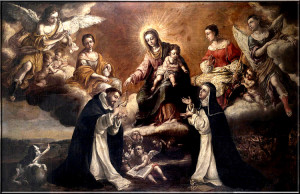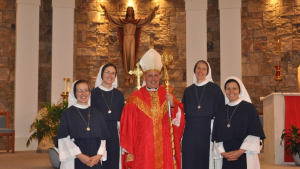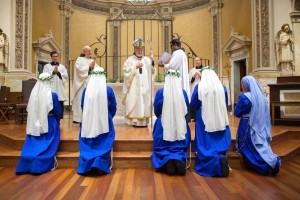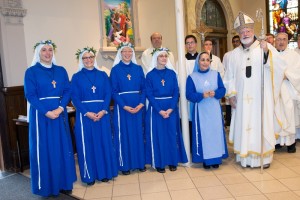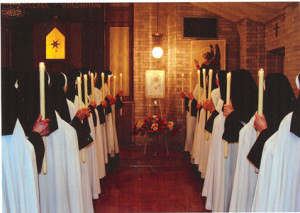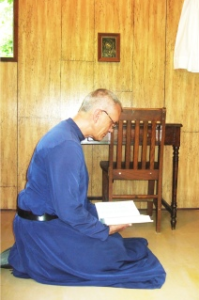 The Holy Father’s prayer intentions for the month of January as well as reflections by Fr. James Kubicki, S.J., National Director of the Apostleship of Prayer.
The Holy Father’s prayer intentions for the month of January as well as reflections by Fr. James Kubicki, S.J., National Director of the Apostleship of Prayer.
UNIVERSAL INTENTION
Interreligious Dialogue: That sincere dialogue among men and women of different faiths may produce the fruits of peace and justice.
Since Pope Paul VI instituted it in 1967, every new year begins with the World Day of Peace. In a conversation with Japanese teachers and students, Pope Francis said: “It is impossible for peace to exist without dialogue. All the wars, all the strife, all the unsolved problems over which we clash are due to a lack of dialogue. When there is a problem, talk: this makes peace.”
But dialogue means more than talking at each other. It means listening. “And what is the deepest approach we should have in order to dialogue and not quarrel? Meekness, the ability to encounter people, to encounter cultures peacefully; the ability to ask intelligent questions. Listening to others and then speaking. All this is meekness.”
Jesus described his heart as meek and humble. As we ask him to make our hearts like his, we are asking to have the meekness that is the basis for encounter and dialogue—the way to peace.
When he visited Turkey, Pope Francis spoke of the “sacred character” of “human life, a gift of God the Creator.” He said: “Fanaticism and fundamentalism need to be countered by the solidarity of all believers. This solidarity must rest on the following pillars: respect for human life and for religious freedom.”
And he gave us the challenge that is behind our prayer this month: “The world expects those who claim to adore God to be men and women of peace who are capable of living as brothers and sisters, regardless of ethnic, religious, cultural or ideological differences.”
Christian Unity: That by means of dialogue and fraternal charity and with the grace of the Holy Spirit, Christians may overcome divisions.
The world wonders if peace is possible when the followers of the Prince of Peace are divided and have for centuries and into the present killed one another over their differences. Unbelievers will have a hard time accepting Christianity as long as its adherents are divided.
Every year from January 18-25 we celebrate a time of intense prayer for Christian unity. At the conclusion of the 2014 week of prayer, Pope Francis said that “we may not regard divisions in the Church as something natural, inevitable in any form of human association. Our divisions wound Christ’s body, they impair the witness which we are called to give to him before the world.”
He quoted also the words of Vatican II’s decree on ecumenism: “…division openly contradicts the will of Christ, scandalizes the world, and damages the sacred cause of preaching the Gospel to every creature.” And he added this comment: “We have all been damaged by these divisions. None of us wishes to become a cause of scandal.”
“And so we are all journeying together,” the pope continued, “fraternally, on the road towards unity, bringing about unity even as we walk; that unity comes from the Holy Spirit and brings us something unique which only the Holy Spirit can do, that is, reconciling our differences. The Lord waits for us all, accompanies us all, and is with us all on this path of unity.”
It has been fifty years since the Second Vatican Council ended. Are we any closer to unity? Or are we further apart? The world urgently needs Christian witness which demonstrates that conflicts can be overcome through dialogue and charity. As we pray, we open ourselves to the Holy Spirit’s power that alone can bring about unity.
